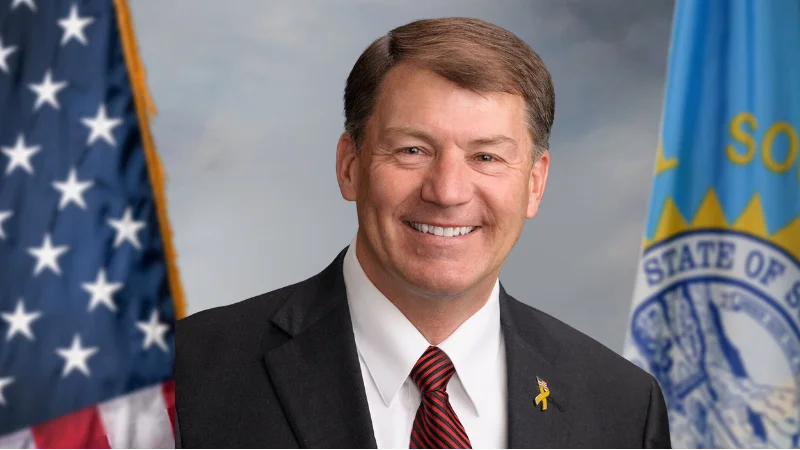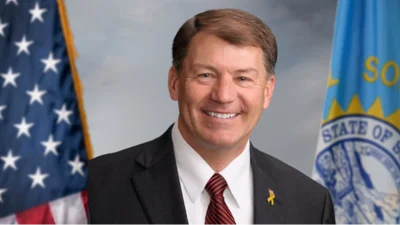Senator Mike Rounds, US Senator for South Dakota | Official U.S. Senate headshot
Senator Mike Rounds, US Senator for South Dakota | Official U.S. Senate headshot
Senator Mike Rounds, who represents South Dakota in the U.S. Senate, shared updates on recent meetings with local stakeholders through a series of posts on his social media account. The posts highlight discussions about education funding, tribal community needs, and pharmacy care in South Dakota.
On September 24, 2025, Senator Rounds posted about his engagement with school representatives: "Always enjoy visiting with representatives from South Dakota schools who receive impact aid. We talked about funding for impact aid, and how it provides stability for the local schools that are directly supporting our next generation of South Dakotans."
The following day, September 25, 2025, he noted a meeting with tribal leadership: "Great to see Ryman LeBeau, Chairman for the Cheyenne River Sioux Tribe in the office last week. We spoke on the new school at CRST, as well as law enforcement, housing and preventive healthcare needs."
Later that same day, Senator Rounds highlighted a conversation with a local pharmacist: "Always grateful for the chance to hear directly from our local pharmacists. Jessica Strobl from Lewis Drug shared how she serves patients every day and the challenges pharmacies face in keeping care affordable and accessible. We also discussed the future of pharmacy and the"
Impact Aid is a federal program designed to provide financial assistance to local school districts that are affected by federal activities or have lost property tax revenue due to federal land ownership. This funding helps stabilize budgets for schools serving military families or Native American students.
The Cheyenne River Sioux Tribe (CRST) is one of nine federally recognized tribes in South Dakota. Tribal communities often work closely with state and federal officials to address issues such as education infrastructure, public safety, housing shortages, and access to healthcare services.
Pharmacies across rural states like South Dakota face unique challenges including workforce shortages and reimbursement pressures while striving to maintain access to affordable medications for residents.




 Alerts Sign-up
Alerts Sign-up